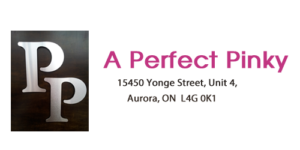Causes and Types of Acne, Including Maskne
As the pandemic this year continues, so does our mask wearing in hopes to prevent the spread of it. Unfortunately, wearing a mask or any fitted clothing, can cause unsightly blemishes.
What Causes Acne?
Acne is a condition many of us suffer from. It is a condition that occurs when hair follicles become clogged with oil, dead skin cells and bacteria. Sebum is an oily substance created in our sebaceous glands that are connected to the pores of our skin. The pores and glands are connected to an opening known as a follicle which is where the hair grows out of the skin’s surface. When sebum, bacteria and dead skin cells combine, they form a plug in the follicle creating an inflamed bump or a covered pore. Fortunately, there are ways to prevent and treat acne once we know which form we are dealing with.
There are different types of basic acne lesions, or comedones, as they are also known
Blackhead
Plugs pores on the skin’s surface that appear to have a black “cap” due to oxygenation.
Whitehead
Plugged pores that are slightly raised and look white.
Pustule
Commonly referred to as a pimple, a raised bump with pus at the tip.
Papule
Small, inflamed pink bump which normally will turn into a pustule.
Nodule
Painful, large, solid lumps beneath the skin’s surface.
Cystic Lesions
Extremely painful lumps beneath the skin’s surface that are pus filled.
Acne affects millions of people for various reasons. It appears mostly on the face, back, chest and shoulders. These are areas of oil gland density. There are certain things that can trigger an acne episode.
1. Hormonal changes
Androgens are hormones that multiply during puberty causing the sebaceous glands to become overstimulated, making them more visible. Women often experience an increase in acne at various stages of their monthly cycles and at different life stages including peri menopause and menopause.
2. Diet
There are certain foods that are rich in carbohydrates that have been suggested to worsen acne. There are studies being performed to see if lessening the consumption of these foods makes a difference in acne severity.
3. Stress
Stress causes a multitude of issues for us; increased acne maybe one of them.
4. Medication
Certain medications may cause or increase acne, such as steroids.
5. Hygiene
Scrubbing your face roughly or using improper cleansers, especially ones with strong ingredients or chemicals, can worsen acne. Using proper face products will alleviate some hygienic issues.
6. Friction
Here’s where wearing a mask comes in! Continuous friction or pressure on your skin can exacerbate your acne condition. Masks, cellphones, helmets and backpacks are some culprits.
As mentioned, proper facial and body products, including cosmetics, can aid in alleviating acne. Try to avoid products that are oil-based and use ones that contain water as an ingredient. If you feel this is not helping, contact a dermatologist. There are many medications, both topical and oral, that may benefit in treating your skin. A dermatologist may also suggest topical therapies, such as chemical peels or light therapy, in combination with medications or on their own.
Taking care of yourself and your skin can help in healing your acne, or help to prevent it altogether. Make sure to wash your face and body with appropriate products, avoid touching your face with your hands and phones and maintain a healthy diet and exercise regime. Acne is a common skin disorder that can be managed and healed with the proper care. Don’t give up. There’s always help.
A facial is another way to help refresh the skin. Contact us today to book yours now!




Leave a Reply
Want to join the discussion?Feel free to contribute!